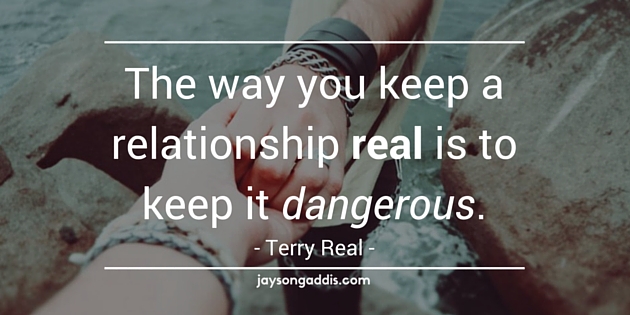How to Move on After Being Ghosted
Being ghosted sucks. And it can be a difficult thing to move on from when you’re the one who’s been ghosted.
It’s frustrating…and it hurts. But just like everything else, you can get through it, even if it doesn’t feel like it at the time.
So when you’re in this situation, what’s the best way to move on after getting ghosted?
Make the Pain Your Neutral Companion
You’re going to feel a lot of things over time after you’ve been ghosted.
You’ll feel anger—maybe even rage. Frustration. Pain, loss, and of course, hurt. You might freak out, feel scared, and possibly even beat yourself up.
All of your feelings are okay; it’s normal to feel all of it. It’s a hurtful thing the other person did, and you’re allowed to feel that hurt.
And the best thing you can do in that situation is to accept whatever pain you feel. Be with it—your experience, your anger, all of it. Get comfortable with it and don’t resist it or run away from it.
When someone ghosts you, it’s an opportunity to get stronger.
It’s a vital thing for you to be with yourself and your experience, whatever you’re feeling at the time. That’s part of getting stronger.
Pain is a part of life, and it can always be used as a growth opportunity. It may be hard to think of at the time, but it’ll help you develop your relational chops the next time you start a relationship.
So feel the hurt, be with it, and accept it—and tell yourself it’s okay, because it is.
Get in Touch with Your Past
Amidst your pain, there’s another thing you can do that will help you move forward after being ghosted.
You can think of this ghosting experience as an opportunity for you to heal something from your past that’s triggering the pain.
Think about your history…maybe you had another relationship that ended with getting ghosted—or a parent who wasn’t in your life, left, or just wasn’t really there for you.
The key thing to do is to reflect on your history and think about whether this has happened to you before. I find that most people who have been ghosted by someone have a historical instance in their life that needs to be healed.
Acknowledging that event in your history is the first step toward healing and using the experiences to empower yourself for the future.
Check out this short video on moving on from ghosting:
Change Your Outlook on Relationships
This ghosting experience is a good time to recognize the importance of communication in relationships.
The truth is, ghosting and lack of communication are disrespectful. And even though you might want to talk to that person again, to try to give them another chance, do you really want to be in a relationship with someone who won’t even give you the respect of good communication?
I know you may desperately want to hear from that person. But try to tell yourself that they don’t deserve your time.
You want a relationship where communication is mutual—and if it’s reciprocal, you won’t have to be the one reaching out to them all the time and feeling ignored.
Tell yourself that you want—and deserve—something better. Once you feel empowered and realize you want the respect of mutual communication, you’ll be better prepared for that next relationship where you’ve made progress toward healing and receiving the kind of communication you’re willing to give.
Progress Is Crucial
So cut yourself some slack because as you know, we’re all works in progress. Remember that every experience can be turned into a growth opportunity when you have the right mindset.
Allow your ghosting experience to be a learning and healing one, and you just might find yourself in a better position than before.
Want more support? Join our free Facebook group here and get a couple of awesome videos, too.
___________________________________________________________________
Photo Credit: Thom Holmes – Unsplash

















